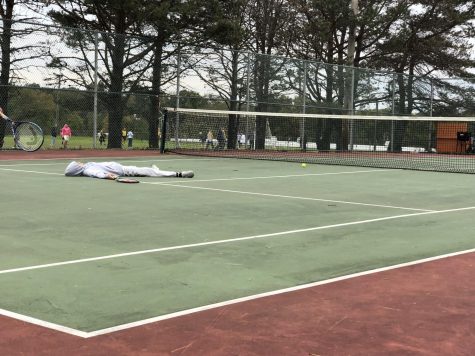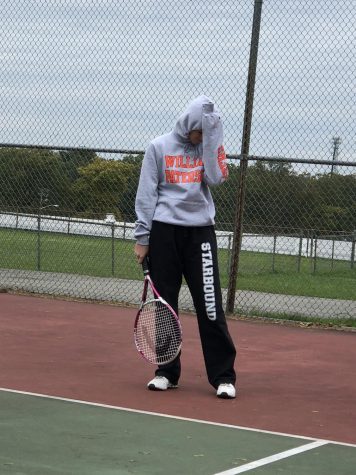High school athletes overworked
Sports are enjoyed by high school students across the country, but sometimes they have a negative impact on students. According to Johns Hopkins Medical Center , 30 million students play sports a year, with 3.5 million injuries taking place, and around 200,000 deaths occurring annually. An example of one of these deaths is 19 year-old

Jordan McNair. He died on June 13, 2018, from complications of heat stroke. However, his death could have been avoided if the college had called the ambulance after McNair was experiencing pain, not over an hour after he left the field. McNair’s parents are suing The University of Maryland and holding the school responsible for their son’s death. This leads athletes in West Milford to wonder, are they being overworked and harshly treated?
According to a West Milford athlete, “coaches expect too much of players in terms of ability. They’re also not always accommodating that players have lives outside of their sport.”
West Milford offers over fifty clubs, and many students participate in both clubs and sports. Coaches fail to accommodate the meetings of these clubs that run once a week, which conflicts with sports that convene daily. One day a week, sports should be allowed to take a backseat, without any consequences. Most after school meetings run for thirty minutes, an hour at the most, once or twice a month. Sports however, run for two hours minimum a day, five to six days a week.
A different athlete agrees that the coaches of West Milford sports need to let students have priorities other than sports. “Overall, sports don’t allow students to be students first, who should make it their priority to do their best in school. They say you are a student first, but coaches get upset when you miss a practice or show up late.” Many athletes feel this way and struggle to be heard when they want to voice a concern.
A three sport athlete complained that in November, he already feels exhausted and stressed. He even claimed, “I feel like I am already dead.” This goes to show that high school coaches run their athletes to the point of not being able to physically function.
Parents of these athletes have different concerns regarding their child’s sports, and it is mostly related to scheduling. A parent of a West Milford athlete voiced her concern about her child’s hectic schedule: “Summer schedules are intense, but I understand the purpose of needing to practice. It’s a lot on the parents to chauffeur around their kids.” A Facebook poll revealed that nine out of ten parents agree that it is tiring to be dragging themselves around town to pick up and drop off their children, especially when schedule times are constantly shifting. Another anonymous parent stated, “I do not know about other sports, but my daughter’s team has constant last-minute changes of practices, game times, locations, etcetera. I wish the coaches were more organized with their planning.”
Student athletes have also been overworked physically, in practices and games. Coaches are becoming more demanding of athletic abilities. “My coach has pushed me to levels in which I end practice in tears. I am nauseous and dizzy and find it hard to breathe. My teammates also feel this way, but we are scared to talk to our coaches.” Athletes need to learn to speak up to their coaches in a respectful manner, so there is not another McNair incident.
Overall, athletes and parents are beginning to become concerned that athletes are being pushed to a level that they should not be pushed. Students want more of an opportunity to try new things, and parents want a more organized schedule. High schools across America need to change their coaching techniques, and become more accommodating to students and families with busy lives.

